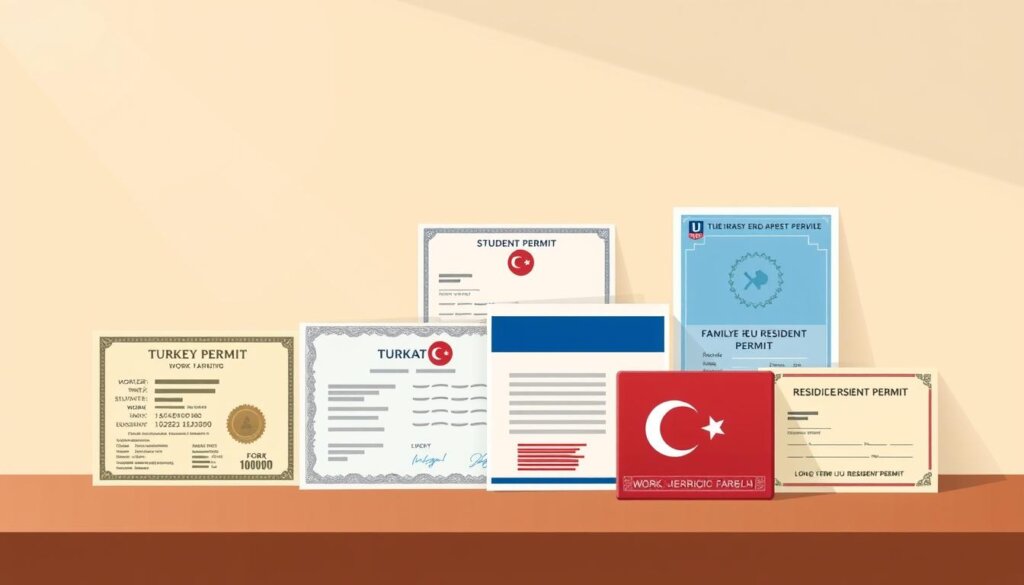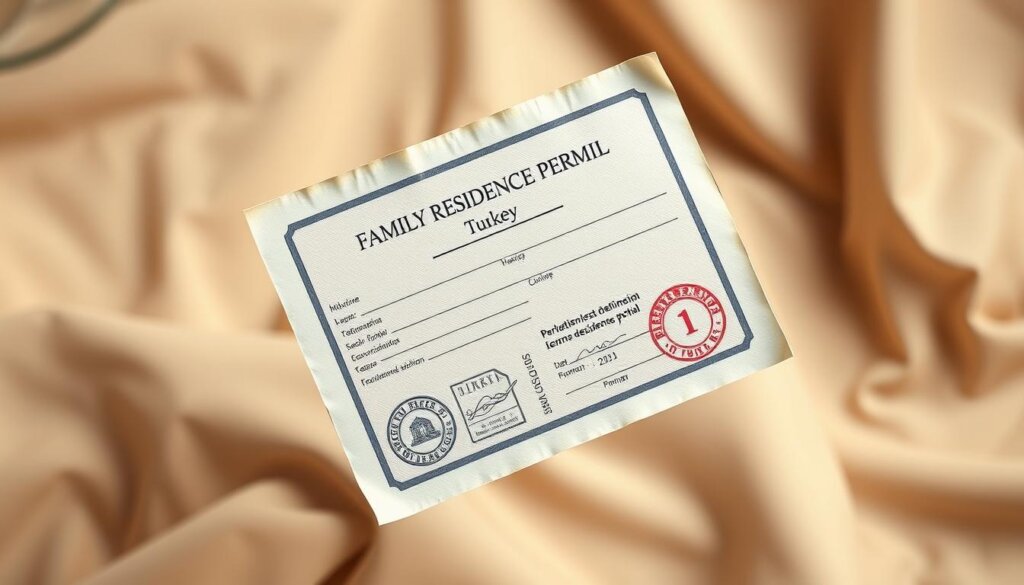Did you know that over 250,000 British nationals visit Turkey each year? Many of them fall in love with the country’s culture, lifestyle, and opportunities. For those considering a longer stay, understanding the process of obtaining a residence permit is essential.
Table Of Content
- Key Takeaways
- Introduction to Residence Permits in Turkey
- What is a Residence Permit?
- Why is it Important?
- Types of Residence Permits in Turkey
- Short-Term Residence Permit
- Student Residence Permit
- Long-Term Residence Permit
- Eligibility Criteria for a Residence Permit
- Basic Requirements
- Financial Stability Proof
- Health Insurance Necessity
- Step-by-Step Guide to Applying for a Residence Permit
- Gathering Required Documents
- Online Application Process
- Scheduling an Appointment
- Understanding the Costs Involved
- Application Fees
- Monthly Costs
- Additional Expenses
- Health Insurance Requirements
- Types of Health Insurance Accepted
- How to Obtain Health Insurance
- Working in Turkey with a Residence Permit
- Work Permit vs. Residence Permit
- Applying for a Work Permit
- Family Residence Permits
- Eligibility for Family Members
- Application Process for Family Permits
- Renewing Your Residence Permit
- When to Renew
- Renewal Process
- Common Challenges and How to Overcome Them
- Documentation Issues
- Financial Proof Challenges
- Dealing with Rejections
- Expert Guidance from Aydın Çakır
- Personalised Assistance
- Contact Information
- Conclusion
- FAQ
- What is a Residence Permit?
- Why is it important to have a Residence Permit?
- What types of Residence Permits are available?
- What are the basic requirements for a Residence Permit?
- How do I apply for a Residence Permit?
- What are the costs involved in obtaining a Residence Permit?
- What types of health insurance are accepted?
- Can I work in Turkey with a Residence Permit?
- Can my family apply for a Residence Permit?
- When should I renew my Residence Permit?
- What are common challenges during the application process?
- How can Aydın Çakır assist with my application?
With 17+ years of experience, I’ve helped countless British nationals navigate this process smoothly. Whether you’re planning to stay for work, retirement, or simply to enjoy the Mediterranean lifestyle, knowing the basics is crucial.
One of the most important rules to remember is the 90/180-day rule for visa-free stays. Overstaying can lead to complications, so planning ahead is key. Additionally, proper documentation and health insurance are not just formalities—they ensure your stay is hassle-free and secure.
In this guide, I’ll share insights on common mistakes, financial proof requirements, and how to access real healthcare benefits. Let’s make your journey to living in Turkey as seamless as possible.
Key Takeaways
- Understand the 90/180-day rule to avoid overstaying.
- Proper documentation prevents delays in the application process.
- Health insurance provides access to real healthcare benefits.
- Financial proof is essential for a successful application.
- Expert guidance ensures a smooth and stress-free experience.
Introduction to Residence Permits in Turkey
Planning to stay in Turkey for more than 90 days? Here’s what you need to know. A residence permit is a legal document that allows you to live in the country beyond the standard visa-free period. Unlike tourist visas, which are temporary, this permit is designed for those who wish to make Turkey their home for a longer duration.
For UK citizens, the rules are clear. You can enter turkey without a visa for up to 90 days within a 180-day period. However, if you plan to stay turkey longer, a turkish residence permit becomes mandatory. Overstaying without one can lead to serious consequences, including fines and even a 5-year entry ban.
What is a Residence Permit?
Under Law No. 6458, a residence permit is a legal requirement for anyone staying in Turkey for more than 90 days. It’s not just a formality—it’s your gateway to accessing essential services. For example, without a permit, you can’t open a bank account, rent property, or access the national healthcare system.
“Timely application saved one of my clients from deportation. It’s not just about compliance—it’s about securing your future in Turkey.”
Why is it Important?
Having a residence permit is crucial for both practical and legal reasons. It ensures you can live in Turkey without worrying about overstaying fines, which have recently doubled to £43 per day. Additionally, it grants you access to SGK health insurance, making healthcare affordable and accessible.
| Aspect | Tourist Visa | Residence Permit |
|---|---|---|
| Duration | Up to 90 days | Beyond 90 days |
| Bank Account | Not allowed | Allowed |
| Healthcare Access | Limited | Full access with SGK |
In summary, a residence permit is more than just a document—it’s your key to a seamless and secure life in Turkey. Whether you’re planning to work, retire, or simply enjoy the Mediterranean lifestyle, understanding its importance is the first step.
Types of Residence Permits in Turkey
Turkey offers various residence permits tailored to different needs and purposes. Whether you’re planning a short stay, pursuing education, or considering a long-term move, understanding your options is essential. Here’s a breakdown of the main categories.

Short-Term Residence Permit
This permit is ideal for those who wish to stay in Turkey for up to one year. It covers a wide range of scenarios, including tourism, business meetings, or attending training programmes. As of 2024, there are 12 eligible purposes for this permit, making it a flexible choice for many.
One of the key benefits is its simplicity. However, applicants must provide proof of financial stability, with the 2025 requirement set at 1.5 times the minimum wage per family member.
Student Residence Permit
For those pursuing education, the student permit is a must. Recent changes now require confirmation of university enrolment before application. This ensures that only genuine students benefit from this option.
Additionally, this permit allows access to local healthcare and part-time work opportunities, making it a practical choice for students.
Long-Term Residence Permit
If you’ve lived in Turkey for eight years continuously, you may qualify for a long-term permit. This option offers stability, but it comes with strict requirements. Applicants must demonstrate financial independence for at least three years prior to application.
It’s worth noting that this permit is a stepping stone towards citizenship, making it a popular choice for those planning to settle permanently.
“Choosing the right permit can significantly impact your experience in Turkey. I’ve seen clients thrive when they select the option that aligns with their goals.”
Each permit type has its own benefits and requirements. Here’s a quick comparison:
| Aspect | Short-Term | Student | Long-Term |
|---|---|---|---|
| Duration | Up to 1 year | Duration of study | Indefinite |
| Financial Proof | 1.5x minimum wage | University confirmation | 3-year independence |
| Citizenship Pathway | No | No | Yes |
Understanding these options ensures you make an informed decision. Whether it’s a short stay or a long-term commitment, Turkey has a permit to suit your needs.
Eligibility Criteria for a Residence Permit
Understanding the eligibility criteria is the first step towards a successful application. To ensure your stay is legal and hassle-free, you’ll need to meet specific requirements. These include providing the right documents, proving financial stability, and securing adequate health insurance.
Basic Requirements
To qualify, you’ll need a valid passport, proof of accommodation, and a clean criminal record. Notarised translations of your documents are often required, so it’s best to prepare these in advance. Additionally, you must demonstrate a legitimate reason for your stay, such as work, study, or family reunification.
Financial Stability Proof
One of the most critical aspects is proving your financial stability. As of 2024, you’ll need a minimum monthly income of £800. For renewals, six months of bank statements are mandatory. This ensures you can support yourself without relying on public funds.
Income from pensions, property rentals, or investments is acceptable. However, ensure your financial records are clear and up-to-date to avoid rejections. I always recommend maintaining an emergency fund beyond the minimum requirements for added security.
Health Insurance Necessity
Securing health insurance is non-negotiable. The Migration Directorate provides a list of approved insurers, so choose one that meets your needs. Coverage thresholds vary for individuals and families, so ensure your policy aligns with your circumstances.
“Having the right insurance not only meets legal requirements but also gives you peace of mind during your stay.”
By meeting these criteria, you’ll be well on your way to obtaining your residence permit and enjoying a seamless experience in Turkey.
Step-by-Step Guide to Applying for a Residence Permit
Applying for a legal stay in Turkey involves a straightforward process if you know the steps. With over 20,000 daily applications processed nationwide, it’s essential to stay organised and informed. Here’s how to navigate the system efficiently.

Gathering Required Documents
Start by collecting all necessary paperwork. You’ll need a valid passport, proof of accommodation, and a police clearance certificate. For UK citizens, ensure your documents are translated into Turkish by a certified translator. Recent changes in Istanbul district eligibility mean double-checking your address details is crucial.
If you’re missing any documents, don’t panic. The system allows a 30-day window to complete your file. I always advise clients to prepare a checklist to avoid delays.
Online Application Process
The e-ikamet system is your gateway to submitting your application. Follow these steps:
- Create an account on the official portal.
- Fill in the required details, including your personal information and reason for stay.
- Upload scanned copies of your documents.
Once submitted, you’ll receive a reference number to track your application status via the YIMER 157 hotline.
Scheduling an Appointment
Since 2019, in-person appointments have been mandatory. To secure a slot quickly, book early in the morning when the system updates. I recommend having all documents ready before scheduling to avoid last-minute stress.
“Preparation is key. Clients who follow the steps meticulously often have a smoother experience.”
By following this guide, you’ll be well-prepared to complete your permit application without unnecessary delays. Whether it’s your first time or a renewal, staying organised ensures a hassle-free process.
Understanding the Costs Involved
Understanding the financial aspects of your stay is crucial for a smooth experience. From application fees to monthly expenses, planning ahead ensures you avoid surprises. Let’s break down the costs involved in obtaining a residence permit.
Application Fees
The initial application fee is £15, with an additional £20 charged monthly. For entry applications, a £95 visa fee applies. These costs are standard across most provinces, but it’s worth checking local variations. Payment methods include credit cards and bank transfers, accepted at migration offices.
Notary fees, averaging £30-£50, are often overlooked. These are required for document authentication and translations. Always budget for these hidden costs to avoid last-minute stress.
Monthly Costs
Beyond the application, monthly expenses include accommodation, utilities, and daily living. For a family of four, the minimum monthly income requirement is £800. This ensures you can sustain your lifestyle without financial strain.
Healthcare is another consideration. While SGK insurance is affordable, private policies may offer better coverage. Factor this into your monthly budget for peace of mind.
Additional Expenses
Hidden costs can add up quickly. Translation services, courier fees, and travel to migration offices are common. Regional variations also play a role—costs in Istanbul may differ from smaller towns.
If your application is rejected, refund policies vary. Some fees are non-refundable, so it’s essential to double-check your documents before submission. Using relocation services can simplify the process but comes at an additional cost.
“Proper budgeting is the key to a stress-free experience. I’ve seen clients save thousands by planning ahead and understanding the costs involved.”
Here’s a quick comparison of DIY vs relocation service costs:
| Aspect | DIY | Relocation Services |
|---|---|---|
| Application Fees | £15 + £20/month | £15 + £20/month |
| Notary Fees | £30-£50 | Included |
| Translation Services | £50-£100 | Included |
By understanding these costs, you can create a realistic budget and enjoy a seamless experience. Whether you’re managing the process yourself or seeking professional help, planning ahead is essential.
Health Insurance Requirements
Securing the right health coverage is a vital step for anyone planning a long-term stay abroad. Whether you’re moving for work, study, or retirement, having adequate health insurance ensures peace of mind and access to essential services.
Types of Health Insurance Accepted
Turkey offers two main options for health coverage: SGK universal insurance and private medical insurance. SGK becomes available after one year of residency and provides comprehensive coverage. However, many expats opt for private insurance, which requires a minimum coverage of £30,000.
UK travel insurance is often insufficient for long-term stays, especially post-Brexit. It’s essential to choose a policy that meets Turkish requirements and covers pre-existing conditions. Family packages are also available, offering discounts for multiple members.
How to Obtain Health Insurance
Registering for SGK involves a straightforward process. You’ll need to visit a local SGK office with your residency documents and complete the necessary forms. For private insurance, compare providers to find the best fit. Top insurers for expats include Allianz, AXA, and Groupama.
Ensure your policy covers emergency areas often overlooked, such as dental care and mental health. Setting up renewal reminders can help avoid lapses in coverage. Remember, having the right insurance is not just a legal requirement—it’s a safety net for your well-being.
“Choosing the right insurance policy can make all the difference. I’ve seen clients avoid costly medical bills by selecting comprehensive coverage tailored to their needs.”
Here’s a quick comparison of SGK and private insurance:
| Aspect | SGK | Private Insurance |
|---|---|---|
| Coverage Start | After 1 year | Immediate |
| Minimum Coverage | N/A | £30,000 |
| Pre-existing Conditions | Limited | Covered |
By understanding your options and choosing the right policy, you can ensure a smooth and secure experience during your stay.
Working in Turkey with a Residence Permit
For many UK citizens, the idea of working abroad is both exciting and challenging. Turkey offers a wealth of opportunities, but understanding the legal requirements is essential. While a turkish residence allows you to live in the country, it doesn’t automatically grant you the right to work. That’s where a work permit comes into play.
Work Permit vs. Residence Permit
A residence permit and a work permit are two separate documents. The former allows you to stay in Turkey legally, while the latter authorises you to work. UK citizens must apply for a work permit through the Ministry of Labour, even if they already hold a residence permit.
One key difference is the six-month residence requirement. You must have lived in Turkey for at least six months before applying for a work permit. This rule ensures that only those committed to long-term employment are eligible.
Applying for a Work Permit
The application process involves several steps. First, your employer must sponsor your application. They’ll need to provide proof of job availability and demonstrate that the position couldn’t be filled by a local candidate. This is particularly important for professions on the protected list, such as teaching and healthcare.
Freelancing is another option, but recent crackdowns have made it more challenging. If you’re self-employed, ensure your activities comply with local regulations to avoid penalties.
“Understanding the difference between a residence permit and a work permit is crucial. I’ve helped many clients avoid legal issues by guiding them through the process step by step.”
Here’s a quick comparison of the two permits:
| Aspect | Residence Permit | Work Permit |
|---|---|---|
| Purpose | Legal stay | Employment |
| Application | Migration Directorate | Ministry of Labour |
| Duration | Up to 2 years | 1-3 years |
Tax implications are another consideration. Thanks to the UK-Turkey double taxation treaty, you won’t be taxed twice on the same income. Union membership is optional but can provide additional benefits, such as legal support and career development resources.
Whether you’re transitioning careers or starting a new job, understanding these requirements ensures a smooth experience. With the right preparation, you can make the most of your time working in Turkey.
Family Residence Permits
Bringing your loved ones to join you in Turkey is a common goal for many expats. Whether it’s your spouse, children, or elderly parents, understanding the process for a family residence permit is essential. This permit allows your family to live with you legally, ensuring a smooth transition to life abroad.

Eligibility for Family Members
To qualify, you’ll need to meet specific criteria. For instance, you must prove a minimum income of £267 per family member. This ensures you can support your loved ones financially. Additionally, legal documents like marriage certificates must be notarised and translated into Turkish.
There are exceptions for dependent age limits, especially for children over 18 who are still in education. Elderly parents can also be sponsored, provided you meet the financial requirements. Same-sex partners face unique challenges, but recent changes have made the process more inclusive.
Application Process for Family Permits
The application involves several steps. First, gather all necessary documents, including proof of income, accommodation, and legalised marriage certificates. For non-birth children, DNA tests may be required to confirm parentage.
Next, submit your application online through the e-ikamet system. Be prepared for a family interview, where officials may ask questions to verify your relationship. School enrolment certificates are mandatory for children, ensuring they meet local education standards.
“Preparation is key. I’ve helped many families navigate the process smoothly by ensuring all documents are in order and requirements are met.”
Here’s a quick checklist for your application:
- Proof of income (£267/month per family member)
- Notarised and translated marriage certificates
- DNA tests for non-birth children
- School enrolment certificates for kids
- Preparation for family interviews
By following these steps, you can ensure a hassle-free experience for your family. Whether it’s reuniting with your spouse or bringing your children to a new country, the family residence permit makes it possible.
Renewing Your Residence Permit
Keeping your legal status up-to-date is essential for a stress-free stay abroad. Renewing your residence permit on time ensures uninterrupted access to essential services like healthcare, banking, and employment. Missing the deadline can lead to fines, complications, or even a ban from re-entering the country.
When to Renew
You should start the renewal process at least 30 days before your current permit expires. This gives you enough time to gather documents and address any issues. Istanbul has a 40% rejection rate, so early preparation is crucial.
UETS notifications are now mandatory for renewals. These alerts remind you of upcoming deadlines and any changes in requirements. Staying informed can save you from last-minute stress.
Renewal Process
The renewal process involves several steps. First, gather all required documents, including proof of address, tax compliance certificates, and updated health insurance. Red flag documents, such as incomplete bank statements, can trigger audits, so double-check everything.
Employment changes during renewal must be reported immediately. If you’ve switched jobs, provide your new contract and employer details. Digital notary options, available from 2025, will simplify document authentication.
In case of late renewal, emergency procedures are in place. However, these come with additional fees and stricter scrutiny. It’s always better to renew on time.
“Clients who prepare early and follow the steps meticulously often have a smoother renewal experience. I’ve seen many avoid unnecessary delays by staying organised.”
Here’s a quick comparison of key aspects:
| Aspect | On-Time Renewal | Late Renewal |
|---|---|---|
| Processing Time | 2-4 weeks | 6-8 weeks |
| Fees | Standard £15 + £20/month | Additional £50 penalty |
| Audit Risk | Low | High |
By understanding the renewal process and preparing in advance, you can ensure a seamless experience. Whether it’s your first renewal or a routine update, staying organised is key.
Common Challenges and How to Overcome Them
Navigating the process of securing a legal stay can come with its fair share of hurdles. From missing paperwork to financial proof issues, these challenges can delay or even derail your plans. But with the right approach, you can tackle them head-on and ensure a smooth experience.

Documentation Issues
One of the most common reasons for rejection is incomplete or incorrect paperwork. Missing a single document can set your application back by weeks. Here are the top mistakes to avoid:
- Using outdated forms or templates.
- Failing to notarise or translate documents into Turkish.
- Submitting blurry or unreadable scans.
Always double-check the official checklist and seek professional help if needed. A well-prepared file can save you time and stress.
Financial Proof Challenges
Proving financial stability is a key requirement, but it’s also a common stumbling block. Many applicants struggle with redacted bank statements or insufficient income proof. Here’s how to get it right:
- Ensure your bank statements cover the required period and show consistent income.
- Highlight income sources like pensions, rentals, or investments clearly.
- Avoid redacting essential details, as this can lead to audits.
Remember, the goal is to demonstrate you can support yourself without relying on public funds.
Dealing with Rejections
Rejections can be frustrating, but they’re not the end of the road. Around 30% of applications are rejected due to incomplete forms or minor errors. Here’s what to do if it happens to you:
- Review the rejection notice carefully to understand the reason.
- Gather missing or corrected documents for reapplication.
- Consider hiring a legal representative to handle complex cases.
“A rejection doesn’t mean you’ve failed—it’s an opportunity to improve your application. I’ve helped many clients turn a rejection into approval by addressing the issues systematically.”
If you suspect unfair treatment, you can file a complaint with the ombudsman. Always avoid bribery attempts, as they can lead to severe penalties, including a 5-year entry ban.
Expert Guidance from Aydın Çakır
With over 1 million permits issued since 2018, securing your legal stay has never been more streamlined. My team and I have helped countless individuals navigate this process with a 92% success rate in complex cases. Whether you’re applying for the first time or renewing, our expertise ensures a smooth experience.
Personalised Assistance
Every application is unique, and that’s why we offer tailored services to meet your specific needs. From document verification pre-checks to emergency appointment scheduling, we handle every detail. Our regional office network spans 81 provinces, ensuring you have access to support wherever you are.
Our multilingual staff is always available to assist, making the process easier for non-Turkish speakers. With a transparent fee structure and guarantees, you can trust us to deliver results. Here’s what sets us apart:
- Document verification pre-check service.
- Emergency appointment scheduling access.
- Regional office network across 81 provinces.
- Multilingual support staff availability.
Contact Information
If you need advice or assistance, don’t hesitate to reach out. You can contact me directly at +90 532 577 87 67 via WhatsApp or Telegram. For general inquiries, the YIMER 157 multilingual support line is also available.
“Clients who work with us often achieve their goals faster and with fewer complications. Let us help you make your stay in Turkey seamless.”
Here’s a quick overview of our services:
| Service | Details |
|---|---|
| Document Verification | Pre-check to ensure accuracy. |
| Appointment Scheduling | Emergency slots available. |
| Support | Multilingual staff across 81 provinces. |
Conclusion
Ensuring a smooth and legal stay abroad requires careful planning and attention to detail. From meeting key deadlines to proving financial stability, every step matters. Keeping your residence permit valid is essential to avoid fines or complications.
Looking ahead, 2025 will bring new regulations. Staying informed will help you adapt quickly. Here’s a quick checklist before you submit your application:
- Verify all documents are complete and up-to-date.
- Ensure your financial proof meets the required thresholds.
- Double-check health insurance coverage.
If you need personalised guidance, I’m here to help. My team and I have successfully assisted many families in relocating to Turkey. Let’s make your journey seamless and stress-free.
Remember, our support doesn’t end with approval. We’re here to help you every step of the way. Ready to start? Reach out today for expert advice tailored to your needs.
FAQ
What is a Residence Permit?
A Residence Permit is an official document allowing foreigners to legally stay in Turkey for a specific period. It’s essential for those planning to live, work, or study here.
Why is it important to have a Residence Permit?
It ensures legal compliance, grants access to services like healthcare, and simplifies processes such as opening a bank account or renting property.
What types of Residence Permits are available?
Turkey offers several types, including short-term, student, and long-term permits, each catering to different needs and durations of stay.
What are the basic requirements for a Residence Permit?
You’ll need a valid passport, proof of financial stability, health insurance, and a clean criminal record, among other documents.
How do I apply for a Residence Permit?
Start by gathering the required documents, complete the online application, and schedule an appointment at the local migration office.
What are the costs involved in obtaining a Residence Permit?
Costs include application fees, monthly expenses, and additional charges like health insurance or document translations.
What types of health insurance are accepted?
Both private and public health insurance plans are accepted, provided they meet the minimum coverage requirements set by the government.
Can I work in Turkey with a Residence Permit?
A Residence Permit alone doesn’t allow you to work. You’ll need a separate work permit, which can be applied for through your employer.
Can my family apply for a Residence Permit?
Yes, family members can apply under the family permit category, provided they meet the eligibility criteria.
When should I renew my Residence Permit?
Renewal should be initiated at least 60 days before your current permit expires to avoid legal complications.
What are common challenges during the application process?
Issues often arise with documentation, financial proof, or unexpected rejections. Proper preparation and expert guidance can help overcome these.
How can Aydın Çakır assist with my application?
With over 17 years of experience, I provide personalised assistance, ensuring your application is accurate, complete, and stress-free.







No Comment! Be the first one.